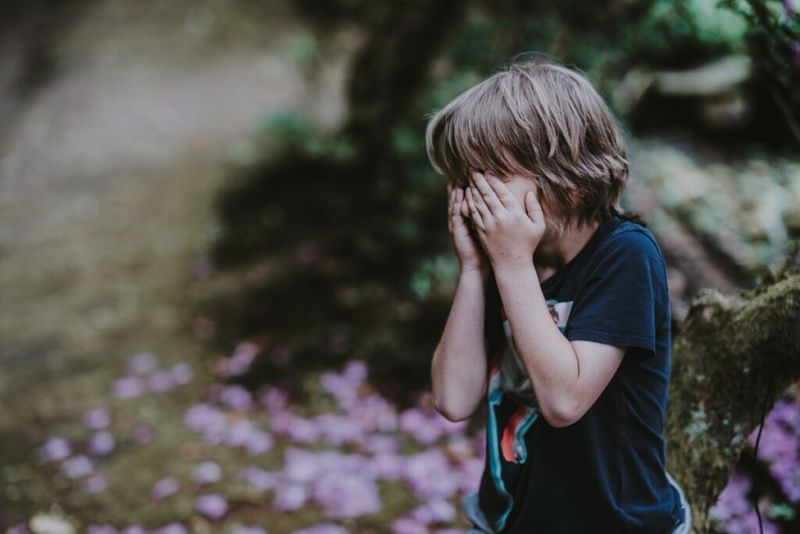10 Common Childhood Traumas We Didn’t Realize Were Traumatic

Many adults carry invisible wounds from their childhood that they never recognized as traumatic experiences. What seemed like normal family dynamics or everyday situations often left lasting emotional scars. Understanding these hidden traumas helps us heal and break cycles that might affect future generations.
1. Being the Family Peacekeeper

Growing up as the child who always had to smooth over family conflicts creates deep emotional burdens. You learned to read every mood, anticipate problems, and sacrifice your own needs to keep everyone happy.
This role forces children to become adults too early. They miss out on being carefree and expressing their own emotions freely.
Many adult people-pleasers trace their behavior back to this childhood responsibility. Recognizing this pattern helps you understand why setting boundaries feels so difficult today.
2. Having Your Feelings Dismissed

When parents regularly responded to your emotions with phrases like “you’re being too sensitive” or “stop crying,” it taught you that your feelings didn’t matter. Children need validation to develop healthy emotional intelligence.
This dismissal creates adults who struggle to trust their own emotional responses. You might find yourself constantly second-guessing your reactions to situations.
Learning to honor your emotions as an adult requires conscious effort. Your feelings were always valid, even if nobody taught you that growing up.
3. Parentification and Adult Responsibilities

Some children become mini-adults, caring for younger siblings, managing household tasks, or even supporting parents emotionally. This stealing of childhood creates lasting resentment and anxiety.
Parentified children often excel at responsibility but struggle with asking for help. They learned early that others depend on them, not the other way around.
As adults, these individuals frequently feel overwhelmed by others’ needs while neglecting their own. Recognizing this pattern allows you to finally prioritize your own well-being appropriately.
4. Chronic Criticism and Perfectionism

Constantly hearing that your efforts weren’t good enough creates perfectionist tendencies that follow you into adulthood. Children who faced relentless criticism learn to fear making mistakes.
This environment teaches kids that love is conditional on performance. They develop an inner critic that never stops finding fault with their actions.
Adult perfectionists often struggle with procrastination and self-doubt. Understanding that you deserved unconditional love as a child helps quiet that harsh inner voice today.
5. Emotional Neglect and Unavailable Parents

Parents who were physically present but emotionally absent leave children feeling invisible and unimportant. This subtle form of neglect is often overlooked because basic needs were met.
Children need emotional connection to develop secure attachment styles. Without it, they learn to rely only on themselves for comfort and support.
Adults from emotionally neglectful homes often struggle with intimacy and vulnerability. They may feel empty inside or have difficulty identifying their own emotional needs and expressing them clearly.
6. Being Compared to Others Constantly

Hearing “why can’t you be more like your sister” or being unfavorably compared to classmates damages self-worth. Children need to feel valued for who they are, not measured against others.
Constant comparisons teach kids that they’re never enough as they are. They develop a competitive mindset that makes genuine relationships difficult.
Many adults still hear those comparison voices in their heads. Learning to appreciate your unique qualities requires unlearning years of measuring yourself against impossible standards set by others.
7. Walking on Eggshells Around Volatile Moods

Living with unpredictable parental moods creates chronic anxiety in children. Never knowing if mom or dad would be happy or explosive today keeps kids in constant survival mode.
This unpredictability teaches children to become hypervigilant about others’ emotions. They learn to sacrifice their own needs to avoid triggering angry outbursts.
Adults from these homes often struggle with anxiety and people-pleasing behaviors. They may find themselves constantly monitoring others’ moods and taking responsibility for everyone else’s emotional state.
8. Privacy Violations and Boundary Crossing

Parents who read diaries, listened to private conversations, or invaded personal space taught children that boundaries don’t exist. This violation of privacy damages trust and autonomy development.
Children need privacy to develop their own identity separate from their parents. Without it, they struggle to understand where they end and others begin.
Adults who experienced boundary violations often have difficulty saying no or maintaining healthy relationships. They may either become overly secretive or have trouble respecting others’ boundaries appropriately.
9. Being Made Responsible for Adults’ Emotions

When parents said things like “you’re making mommy sad” or “daddy drinks because you misbehave,” they placed adult emotional responsibility on small shoulders. Children cannot and should not manage grown-ups’ feelings.
This burden creates adults who feel responsible for everyone’s happiness. They learned early that others’ emotions were somehow their fault or their job to fix.
Breaking free from this pattern means recognizing that you were never responsible for your parents’ emotional well-being. Each person must manage their own feelings and reactions.
10. Conditional Love Based on Achievement

Love that only appeared after good grades, sports victories, or perfect behavior teaches children that they must earn affection. Unconditional love is essential for healthy emotional development.
Children who experienced conditional love become adults who constantly seek approval. They learned that their worth depends on external achievements rather than inherent value.
Recovery involves learning that you deserved love simply for existing. Your worth isn’t tied to your accomplishments, grades, or ability to make others proud of your performance.

Comments
Loading…